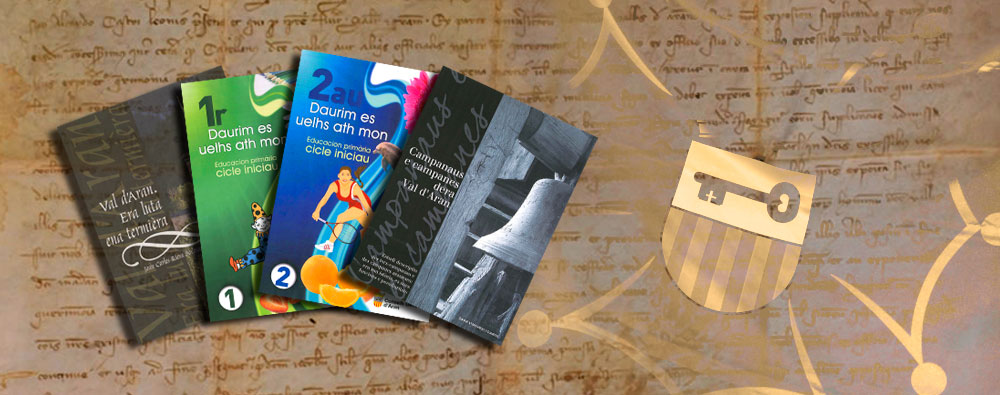The language of Òc
Val D’Aran was living one of the key moments of its history between the 14th and 15th centuries. During the long years of disputes between the Spaniards and the Franks which culminated in the acknowledgement of the privileges which would respect its organizational autonomy (by means of different treaties and the Querimonia which was granted by James II), the Aranese, a language that would be its symbol of distinction until today, was also being shaped.
From the 13th century on, the Occitan language, language of Oc or language of the troubadours, would evolve from Latin in a parallel way but separate from the language of Oil. From France, it was relegated to the South until it reached the Iberian Peninsula where it took other paths and influences. In Val d’Aran, the influence of the Gascon branch of the Occitan language would remain and receive some influences from the languages of the old Basque language that were spoken in previous centuries from the Pyrenees to the Cerdanya.
Hence, it is not surprising that the first written documents of this branch of the Gascon Occitan are censual documents related to the businesses in the Valley during those centuries of constant changes and political pressures. It would not be until the work of the poet Monsén Condó Sambeat, at the end of the 19th century, that we would find an exact literary sample of this language that has survived with its own shape and form until today.
From the middle 20th century on, Aranese literature will gather a special momentum with the arrival of Democracy and the boost given to literary awards such as the Monsén Condó Sambeat award and other literary prizes awarded every year during the festival of Aran on June 17th. Since then, a great number of authors of different ages have become authentic references of the Aranese language with works of great interest that range from essays about the history of the country to poetry, whose doors were opened by the above mentioned priest of the 19th century.
Many of the documents about the history of Val D’Aran that are written in a more primitive Occitan language can be found in the library of Les as well as in the archives of Conselh Generau d’Aran, in Arròs. Numerous works of Aranese authors, most of them novels, but also translations from other author’s works into the Aranese language, can be found in the libraries of Vielha and Salardú .









